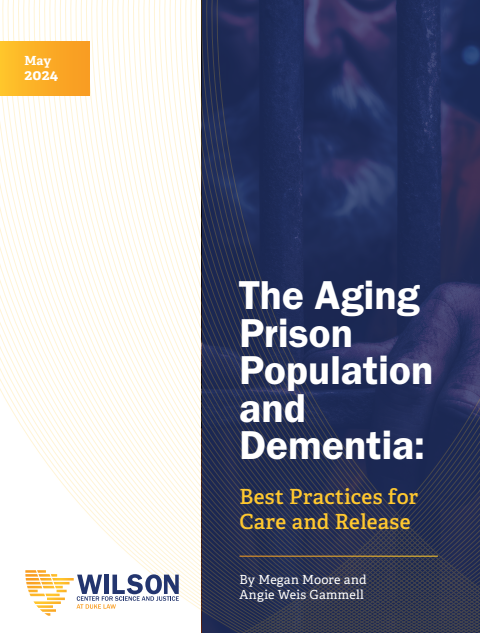The Aging Prison Population and Dementia: Best Practices for Care and Release
By Megan Moore and Angie Weis Gammell
In 2020, 165,700, or 23%, of incarcerated individuals were seniors. This represents a 280% increase in incarcerated older adults since 1999 and is in stark contrast to the steady decline of total prison populations since peaking in 2009. The growing number of older adults has a distinct set of healthcare needs that must be met, including aging-related cognitive impairments like dementia. Older adults behind bars are at a greater risk for developing cognitive impairment and carceral facilities are not properly staffed or equipped to recognize, assess, or care for incarcerated individuals with cognitive decline. The U.S. Census Bureau projects that by 2030, U.S. prisons will hold 400,000 older adults who will comprise one-third of the total incarcerated population. Between approximately 70,000 and 210,000 of those incarcerated older adults will develop dementia. With few national standardized dementia trainings, screenings, and practices across carceral facilities, there is a pressing need to address the diagnostic, medical, and rehabilitative needs of the aging prison population. Importantly, none of the purposes of punishment—incapacitation, rehabilitation, retribution, and deterrence—are advanced by the continued incarceration of individuals living with dementia. Many are unaware of their surroundings or the “why” of their existence in a carceral institution. They are already incapacitated by their medical condition. They no longer have the opportunity for rehabilitation. They are unable to understand their living environment as a consequence of their crime, rendering retribution impossible. Additionally, incarceration is not an effective deterrent against crime, and may actually serve to increase crime. Despite this, state programs providing for geriatric release or release based on cognitive decline are rare. This leaves many individuals living with dementia in prison, burdening states with hefty medical bills. Prison systems must provide adequate medical care to allow those living with cognitive decline to maintain their dignity and protection to prevent their victimization.
Durham, NC: Wilson Center for Science and Justice at Duke Law, 2024. 23p.


